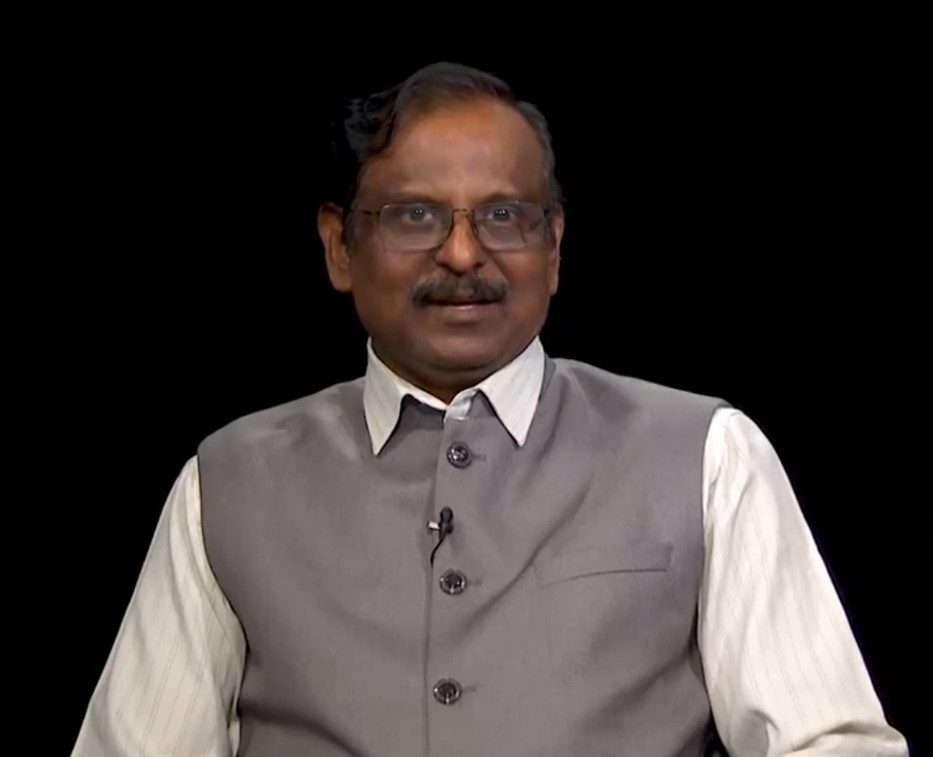ISRO Chairman V. Narayanan on Sunday said that 10 satellites are continuously working round-the-clock for strategic purposes to ensure the safety and security of the country’s citizens.
Addressing the 5th Convocation Ceremony of the Central Agricultural University (CAU), the ISRO Chairman said, “If we want to ensure the safety of our country, we have to serve through our satellites. We have to monitor our 7,000 km-long seashore. Without satellite and drone technology, we can’t achieve many things.”
He added that through many satellites, ISRO has been serving the common people in agriculture, tele-education, telemedicine, television broadcasting, weather forecasting, environmental monitoring, food security, and strategic sectors.
Noting that satellites are playing a critical role in disaster management and mitigation, Narayanan said, “Earlier, during disasters, thousands of people lost their lives, but today this is not the case.”
He further said that India holds the number one position globally in nine areas within the space sector.
“The Chandrayaan-1 mission discovered evidence of water molecules on the Moon’s surface. India was the first country to achieve this. At least 433 satellites for 34 countries have been launched from India and placed into orbit,” he said.
Significantly, he said India has built satellites for G-20 countries to monitor climate change and other critical sectors. Narayanan added that India and the US would jointly build the world’s most expensive and advanced earth-imaging satellite, which will be launched from India.
Narayanan pointed out that until 1975, India had no satellite technology and was nearly 70 years behind advanced nations in space development.
Emphasizing the need for advanced satellite technology for the betterment of citizens, Narayanan—who also serves as Secretary of the Department of Space—predicted that before India celebrates 100 years of independence, it will become a leader in every field and a major contributor to global progress.
He recalled that during the 1950s and 1960s, India produced only 54 million tons of food and relied on imports.
“Now, India produces over 250 million tons of food and exports to many countries. The country has a vast consumer market and a strong manufacturing sector. In electricity generation and milk production, we are among the world leaders,” he said.
He added that India ranks in the top five globally for the production of several key commodities such as rice, wheat, maize, horticultural crops, pulses, oilseeds, and cash crops.
“With developments across sectors, average life expectancy has increased from 32 years to 72 years in recent decades. Child and maternal mortality rates have also declined sharply,” he pointed out.
Narayanan announced that around 100 science students from each of the eight northeastern states would get an opportunity to visit the ISRO Centre in Bengaluru to foster curiosity and awareness about space science and technology.
He said ISRO and its satellites are playing a vital role in the development of the northeastern states and are supporting the implementation of various regional projects.
The ISRO chairman urged students to contribute to society after earning their degrees.
“There is no substitute for hard work and smart work. Total commitment and strong personal values are essential. Self-confidence and self-motivation are crucial. With noble leadership qualities, students must strive to be good human beings,” Narayanan stated.
The Central Agricultural University (CAU), based in Imphal, Manipur, has campuses in eight northeastern states.
Sunday’s convocation ceremony was held at the College of Fisheries in Lembucherra, 12 km north of Agartala in Tripura’s West district. The event was presided over by CAU Chancellor, Prof. Pradeep Kumar Joshi.
IANS














